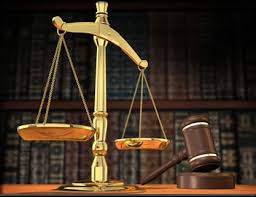Page last updated at 14:33 GMT, Thursday, 1 October 2009 15:33 UK
Murky path of BAE's South Africa deal
The allegations against British firm BAE Systems are mounting up - slush funds, bribery and exploitation in several countries.
In South Africa, the firm was one of the suppliers in a hugely controversial upgrade of the country's armed forces.
Other elements of the deal have already spawned prosecutions, jail sentences and corruption allegations going to the very top of South African society - President Jacob Zuma.
THE ARMS DEAL

BAE's Hawk fighters made up a large chunk of the arms deal
In 1999, the South African government announced its largest-ever post-apartheid arms deal, signing contracts totalling 30bn rand ($4bn; £2.5bn at current exchange rates) to modernise its defence forces.
As well as BAE, the deal also involved companies from Germany, Italy, Sweden, France and South Africa.
Before any allegations of corruption were made, the spending of billions of dollars on new fighter jets, helicopters, submarines and warships was controversial in a country where millions live in poverty.
Critics also pointed out that there was no credible threat to South Africa's sovereignty to justify the spending.
BAE AND SOUTH AFRICA
Allegations of BAE slush funds for entertaining Saudi princes have been well documented, but so far investigators have released little information about the South African allegations.
Media reports in 2007 and 2008 suggested BAE had set up a £100m fund to bribe South African politicians.
South Africa's Mail and Guardian newspaper accused the firm of developing "a web of influence" to push through the deal.
It is claimed that the bribes were used to persuade Pretoria to take the British Hawk fighter jets rather than a much cheaper Italian alternative.
Although no South Africans have faced charges over links with BAE, intermediaries have been prosecuted over other parts of the deal.
SCHABIR SHAIK CONVICTED
Jacob Zuma, the current president of South Africa, was sacked as deputy president in 2005 after his financial adviser, Schabir Shaik, was convicted of fraud and corruption.
Shaik was found guilty of trying to solicit a bribe from Thint, the local subsidiary of French arms company Thales, on behalf of Mr Zuma.
The prosecution alleged Mr Zuma had agreed to shield the firm from an investigation linked to the 1999 deal in exchange for the bribe. Shaik said the money was a donation to the Jacob Zuma Education Fund.
Shaik was given a 15-year sentence and was ordered to pay $5.5m of his assets to the state.
He was freed earlier this year on medical grounds after spending less than three years in jail.
ZUMA CHARGES DROPPED
In 2006, Mr Zuma went on trial for corruption based on the Thint allegations.
But the case collapsed after the prosecution said it was not ready to proceed - even though more than a year had elapsed since he was charged.
In April 2009 prosecutors announced they would not pursue charges against Mr Zuma, concluding that there had been political manipulation in the investigation.
His supporters had always maintained that he had been the victim of a political smear campaign.
TONY YENGENI CONVICTED
Tony Yengeni was the chairman of parliament's defence committee at the time the government negotiated the arms deal, and he was convicted of fraud in 2003.
He had received a large discount on the purchase of a luxury car from one of the firms bidding for the contract.
He then lied to parliament about the benefit.
He was initially given a four-year sentence but had it reduced on appeal and further reduced by a general amnesty.
He was released in January 2007 after serving five months in jail.
Story from BBC NEWS:
http://news.bbc.co.uk/go/pr/fr/-/2/hi/a ... 285406.stm
Published: 2009/10/01 14:33:54 GMT
© BBC MMX


.jpg)
